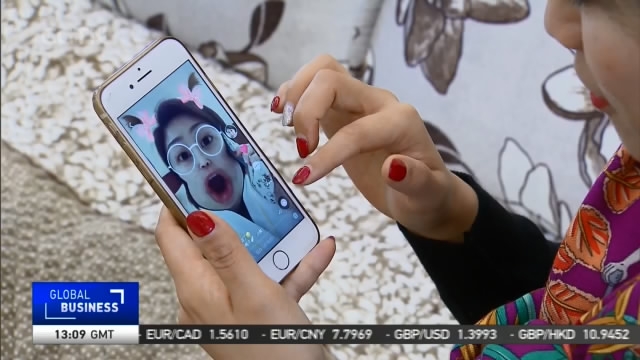
21:33, 23-Feb-2018
Short Video: A new fad on social media

During the Chinese New Year, sending red packets, and watching the Spring Festival Gala are a must for many. But there's something new this year, and, no surprise, it's on mobile phones. People are making funny short videos as a new way to enjoy themselves during the seven-day holiday. Ying Junyi has more.
Zhu Beineng found out about the funny video apps when she overheard her son making one secretly. The boy's creation was so funny that Zhu decided to make one of her own. Unlike most other video apps, this one comes with interesting filters, lip-syncing music and lyrics. Most of the videos are less than 20 seconds long, which makes them perfect for Wechat's social media platform.
ZHU BEINENG "The videos are addictive, the more I make, the more I want to make. At first, I just recorded them on my phone instead of putting them up, but during the Spring Festival, more and more people were posting funny ones, so I posted one too. And the feedback was pretty good."
Zhu says her first public video got more than 1,000 views within 2 hours, and that encouraged her to make more. The whole family finally got into the act.
Thanks to the wider coverage of faster and cheaper internet, and the free time available during the Lunar New Year, the apps took off. More and more ordinary people were coming online, some of them even turning it into a way of making money.
MA SHICONG, NEW MEDIA INDUSTRY ANALYST ANALYSYS "Apart from just the video making apps, you can see that even the more general new media platforms are upgrading themselves with similar features, like lip-syncing functions and interesting filters. This has a lot to do with the evolving demands of their users. Short videos are an upgrade from the pictures and text we saw in the past. They can deliver more information, and are more engaging, which is why so many people are enthusiastic about them."
There is the potential of a shadow being cast over the new-born entertainment fad. Just a few weeks ago, the authorities banned several streaming online bloggers, charging their content was too vulgar and offensive. Some were accused of fraud. While the government licenses the platforms on which the home-made videos are appearing, there has so far been no clear regulation of their content.

SITEMAP
Copyright © 2018 CGTN. Beijing ICP prepared NO.16065310-3
Copyright © 2018 CGTN. Beijing ICP prepared NO.16065310-3